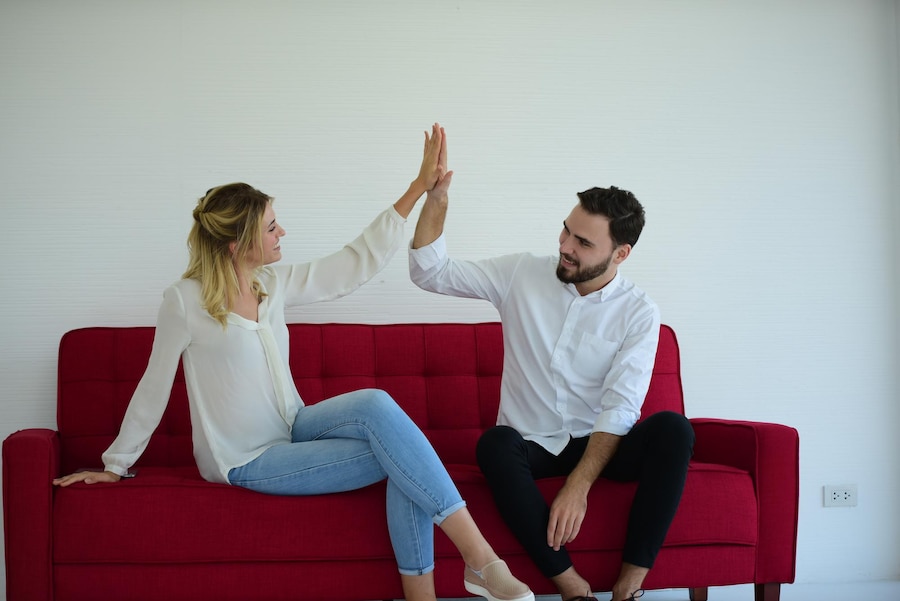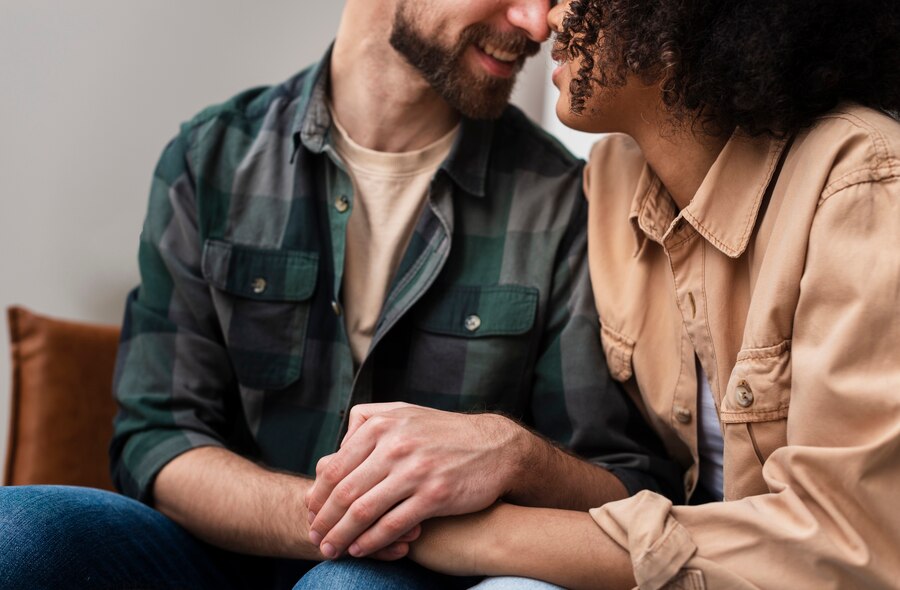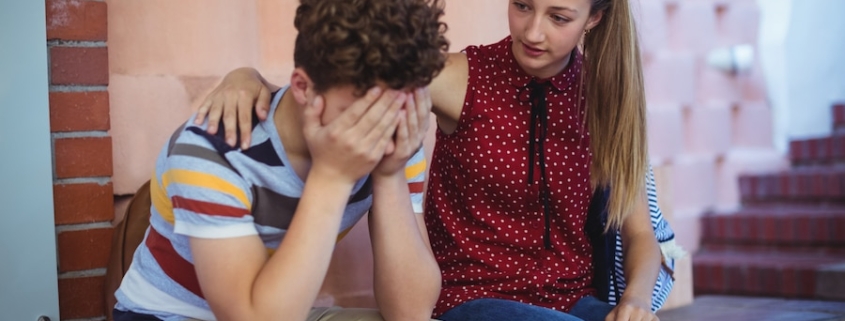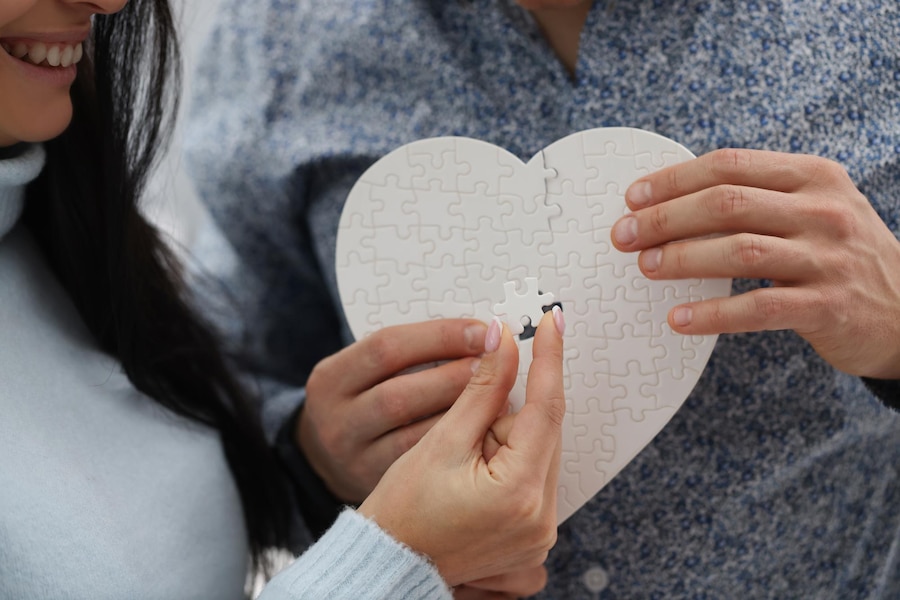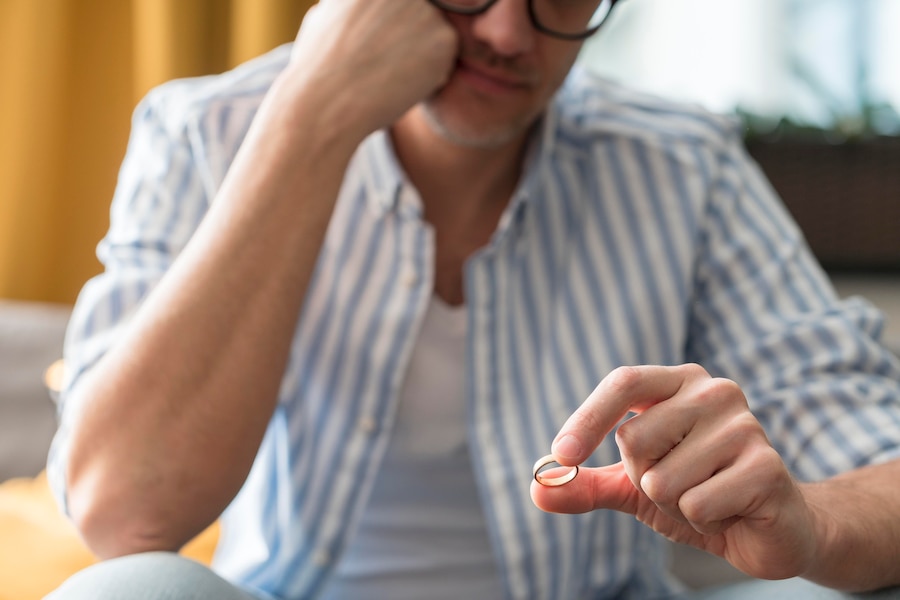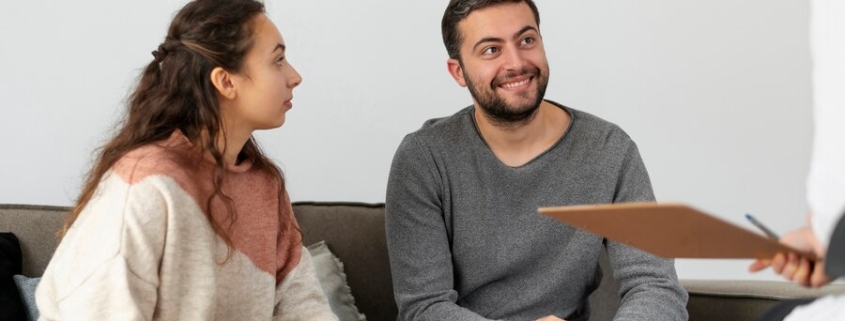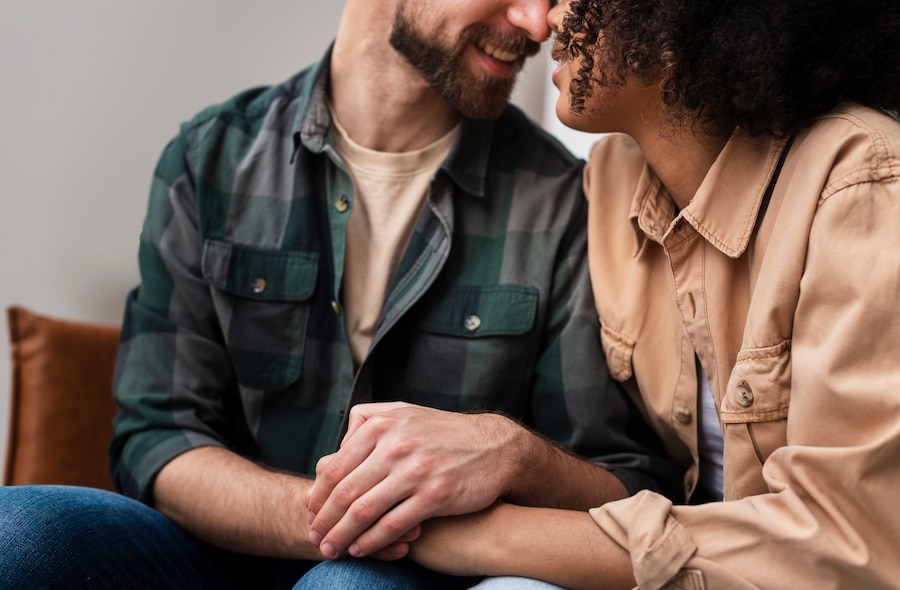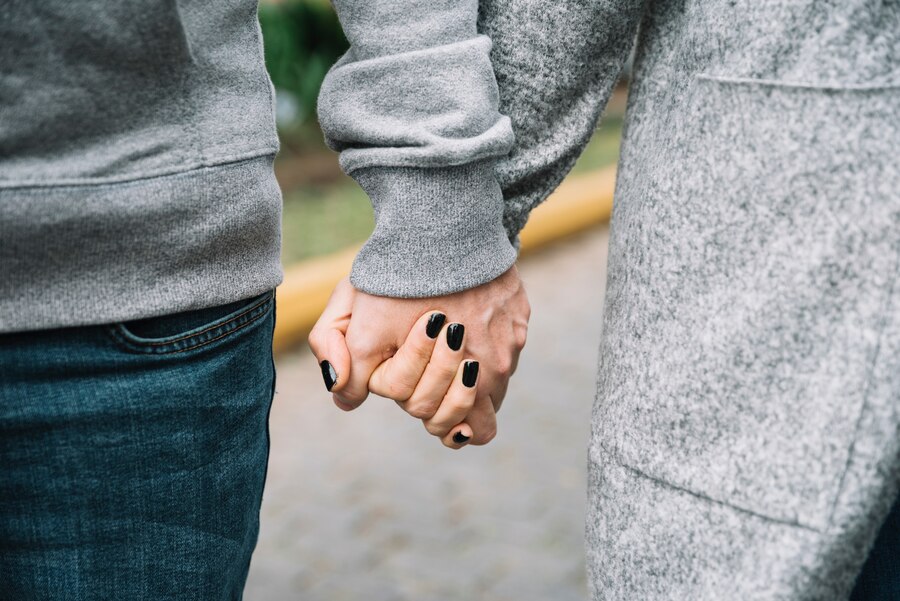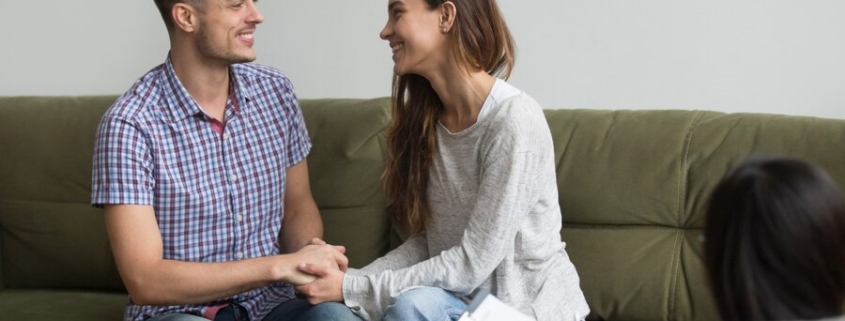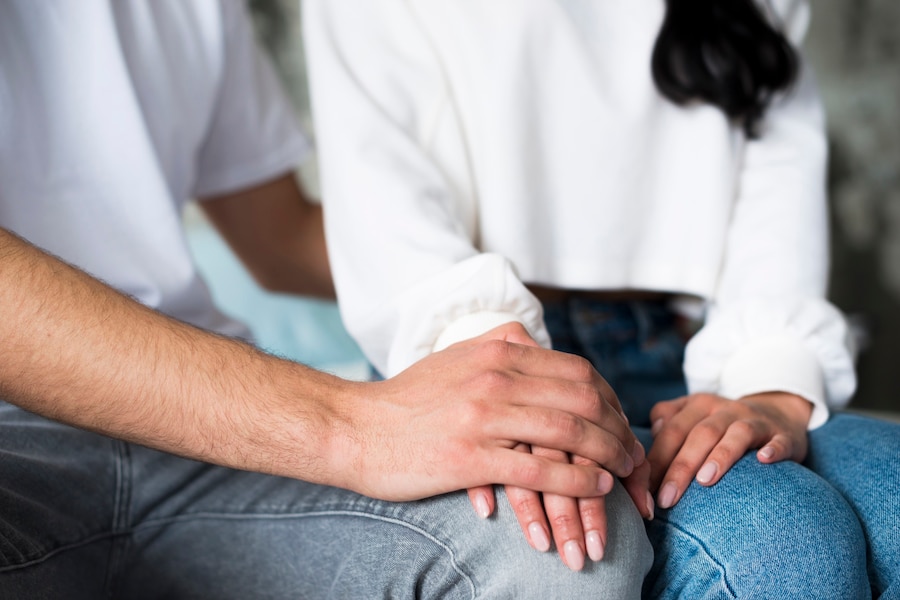Couples rehab programs offer diverse treatment options to meet the needs of couples seeking to overcome addiction together. Each type of program provides different levels of care and support, allowing couples to choose a treatment approach that best fits their circumstances and recovery goals. At Couples Rehab, we offer various programs designed to address both individual and relational aspects of addiction, ensuring comprehensive support throughout the recovery process.
Addiction Treatment Services
Inpatient Couples Rehab
Overview
Inpatient couples rehab involves couples living at a treatment facility for an extended period. This residential approach provides 24/7 care and supervision, ensuring that couples receive constant support as they navigate their recovery journey. The structured environment of inpatient rehab includes a daily schedule filled with therapy, counseling, and group sessions.
By immersing themselves in a controlled environment, couples can focus entirely on their recovery without external distractions. This comprehensive setting allows for a thorough exploration of both addiction and relationship issues, providing a solid foundation for long-term recovery.
Benefits
Inpatient rehab offers intensive care and support, making it an ideal choice for couples needing a high level of intervention. The constant supervision ensures that both partners receive the attention they need to address their addiction and relationship challenges effectively.
Additionally, the immersive nature of inpatient rehab helps couples to fully engage in the recovery process. By removing themselves from their daily routines and stressors, couples can concentrate on healing and rebuilding their relationship in a supportive and distraction-free environment.
Typical Features
Inpatient programs typically include a range of therapy sessions, such as individual, couples, and group therapy. Medical supervision is provided to assist with detoxification and health monitoring, ensuring that all aspects of a couple’s well-being are addressed.
Structured activities, such as therapeutic workshops and group exercises, are integral to the inpatient rehab experience. These activities are designed to support both addiction recovery and relationship improvement, fostering a holistic approach to treatment.
Outpatient Couples Rehab
Overview
Outpatient couples rehab allows partners to attend therapy and counseling sessions during the day while returning home in the evenings. This non-residential approach offers more flexibility compared to inpatient programs, enabling individuals to maintain their work and personal commitments while receiving treatment.
The flexible schedule of outpatient rehab makes it a suitable option for couples who need to balance their recovery with daily responsibilities. This approach provides support while allowing couples to remain in their usual environment.
Benefits
One of the main benefits of outpatient rehab is the ability to continue with normal daily routines. Couples can manage their personal and professional responsibilities while participating in treatment, which can be beneficial for maintaining stability and continuity in their lives.
Outpatient programs are generally less expensive than inpatient options, making them a cost-effective choice for many couples. This affordability, combined with the ability to stay at home, makes outpatient rehab a practical option for those seeking treatment while maintaining their usual lifestyle.
Typical Features
Outpatient programs include scheduled therapy sessions, which may occur several times a week. Support groups provide additional community support and an opportunity to connect with others in similar situations.
Family involvement is often encouraged in outpatient programs, with opportunities for family therapy and engagement in the recovery process. This involvement helps to reinforce the support system and address any family dynamics that may impact the couple’s recovery.
Intensive Outpatient Program (IOP)
Overview
Intensive Outpatient Programs (IOP) offer a more intensive level of care compared to traditional outpatient programs. IOPs include frequent therapy sessions and a structured schedule of counseling and activities, providing a higher level of support while allowing couples to live at home.
This program serves as a bridge between inpatient treatment and full reintegration into daily life, offering a gradual transition back to regular routines while maintaining a high level of therapeutic support.
Benefits
IOP provides increased support and structure, which can be particularly beneficial for couples transitioning from inpatient care or those needing a higher level of care than standard outpatient programs. This enhanced support helps couples to stay focused on their recovery goals and manage their addiction and relationship issues effectively.
The gradual nature of IOP allows couples to ease back into their daily lives while continuing to receive intensive treatment. This transition period helps to maintain recovery progress and prepare couples for long-term success.
Typical Features
IOP typically includes several hours of therapy per week, including individual and group sessions. The program focuses on developing coping skills and strategies for managing addiction and relationship challenges.
Skill-building activities and therapeutic exercises are integral to IOP, helping couples to strengthen their recovery skills and improve their relationship dynamics.
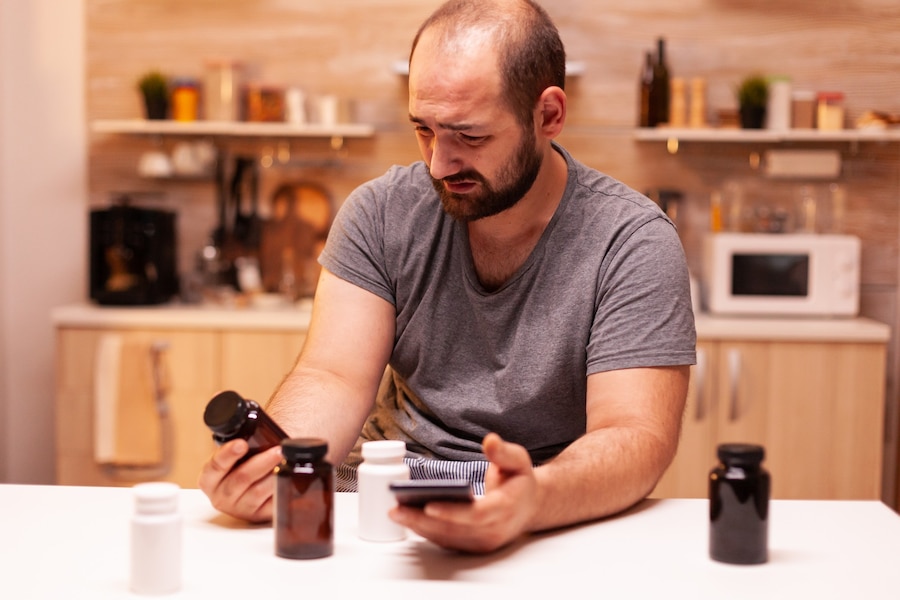
Day Treatment Programs
Overview
Day Treatment Programs involve couples attending therapy sessions and activities during the day while returning home in the evening. This part-day treatment offers a lower level of intensity compared to inpatient or intensive outpatient programs, providing structured support while allowing couples to manage their home and work responsibilities.
This approach offers a balanced level of care, combining therapeutic support with the flexibility of returning home each evening.
Benefits
Day treatment programs provide structured support during the day, helping couples to focus on their recovery while still having the flexibility to handle other responsibilities. This balance allows couples to maintain a degree of normalcy while receiving the treatment they need.
The lower intensity of day treatment programs makes them a more flexible and manageable option for couples who require structured support but need to remain engaged in their daily lives.
Typical Features
Day treatment programs typically include therapeutic activities such as therapy sessions, educational workshops, and support groups. These activities are designed to address both addiction and relationship issues while providing opportunities for personal growth and development.
Family involvement is also a key feature, with opportunities for family therapy and engagement in the recovery process. This involvement helps to strengthen the support system and address any family dynamics affecting the couple’s recovery.
Holistic Couples Rehab
Overview
Holistic couples rehab focuses on integrating traditional addiction treatment with holistic methods, such as yoga, meditation, and nutrition counseling. This integrative approach aims to address the physical, emotional, and spiritual aspects of well-being, promoting overall health and recovery.
By incorporating alternative therapies alongside conventional treatment methods, holistic rehab offers a comprehensive approach to healing and recovery.
Benefits
Holistic rehab provides comprehensive healing by addressing the whole person rather than just the addiction. This approach promotes overall well-being and supports recovery through practices that enhance physical, emotional, and spiritual health.
Alternative therapies offered in holistic programs can complement traditional treatment methods, providing additional tools and techniques for managing addiction and improving relationship dynamics.
Typical Features
Holistic rehab programs include a range of therapies such as yoga, meditation, acupuncture, and nutritional counseling. These practices focus on the mind-body connection and support overall health and recovery.
The emphasis on integrating mind-body practices helps couples to develop a deeper understanding of their well-being and supports a more balanced and holistic approach to recovery.
Couples Therapy in Recovery Programs
Overview
Couples therapy in recovery programs integrates relationship counseling into broader addiction treatment plans. This approach focuses on addressing relationship dynamics within the context of individual recovery, providing a dual focus on both addiction and relationship issues.
By incorporating couples therapy into recovery programs, couples can address how addiction impacts their relationship and work on improving their connection as they pursue sobriety.
Benefits
The dual focus of couples therapy in recovery programs provides treatment for both addiction and relationship challenges simultaneously. This integrated approach enhances overall recovery by addressing how substance abuse affects the relationship and vice versa.
By working on both aspects together, couples can achieve a more comprehensive and synergistic recovery, leading to better outcomes and a healthier relationship.
Typical Features
Couples therapy in recovery programs includes regular counseling sessions that focus on relationship dynamics, communication, and conflict resolution. These sessions are integrated with individual therapy, providing a holistic approach to addressing both addiction and relationship issues.
The combined therapy approach helps couples to develop effective coping strategies and improve their overall relationship health while continuing their recovery journey.
Telehealth Couples Rehab
Overview
Telehealth couples rehab provides counseling and therapy services through video conferencing or phone calls. This remote approach allows couples to receive treatment from the comfort of their home, offering convenience and accessibility.
Telehealth services make it possible for couples to access therapy without geographical or logistical barriers, ensuring that support is available regardless of location.
Benefits
Telehealth rehab offers accessibility for couples who may not be able to attend in-person sessions due to distance or other constraints. This remote option provides flexibility in scheduling and eliminates the need for travel, making it easier for couples to engage in treatment.
The convenience of telehealth allows couples to integrate therapy into their daily lives without disrupting their routines, making it a practical option for maintaining recovery support.
Typical Features
Telehealth couples rehab includes regular online therapy sessions with licensed professionals. These virtual sessions provide the same level of care and support as in-person meetings, allowing couples to work on their recovery and relationship issues from home.
The use of technology in telehealth programs ensures that couples receive consistent and effective treatment while benefiting from the convenience and flexibility of remote services.
Find Treatment at Couples Rehab
Choosing the right couples rehab program is crucial for achieving successful recovery and strengthening your relationship. Each type of program offers unique benefits and features, allowing couples to select an approach that best suits their needs and circumstances. At Couples Rehab, we are committed to providing comprehensive support through a range of treatment options. If you and your partner are ready to begin your journey to recovery, contact us today to learn more about our programs and how we can assist you.
FAQs
the target keyword “types of couples rehab programs.” Remember to optimize your FAQ page’s title, meta description, and header tags as well.
What are the different types of couples rehab programs?
- Couples rehab programs vary based on intensity, duration, and focus. Common types include inpatient, outpatient, and intensive outpatient programs, each tailored to specific needs.
What is inpatient couples rehab?
- Inpatient couples rehab involves residing at a treatment facility together, receiving 24/7 care, and participating in intensive therapy sessions to address addiction and relationship issues.
What is outpatient couples rehab?
- Outpatient couples rehab allows partners to maintain their daily routines while attending therapy sessions together. It’s suitable for couples with stable living situations and moderate addiction severity.
What is intensive outpatient couples rehab?
- Intensive outpatient couples rehab combines elements of inpatient and outpatient programs, offering more structured care than traditional outpatient but allowing for some independence.
Which type of couples rehab is best for me and my partner?
- The best type of couples rehab depends on the severity of addiction, relationship challenges, work commitments, and personal preferences. Consult with a treatment provider to determine the optimal fit.
Is there a couples rehab program for specific addictions?
- Yes, some couples rehab programs specialize in treating specific addictions like alcohol, drugs, or gambling, offering tailored treatment approaches.
Are there couples rehab programs for codependency issues?
- Many couples rehab programs address codependency, providing tools and strategies to build healthier relationships and break free from unhealthy patterns.
Can couples rehab programs accommodate different relationship stages?
- Yes, couples rehab programs cater to couples at various stages, including those in long-term relationships, newlyweds, or those considering marriage.
Do couples rehab programs offer aftercare support?
- Most couples rehab programs provide aftercare services to help maintain sobriety and relationship progress, such as ongoing therapy, support groups, and relapse prevention planning.
What is the cost of couples rehab programs?
- The cost of couples rehab varies based on the program’s intensity, duration, and location. Many facilities offer financial assistance options and insurance coverage.




